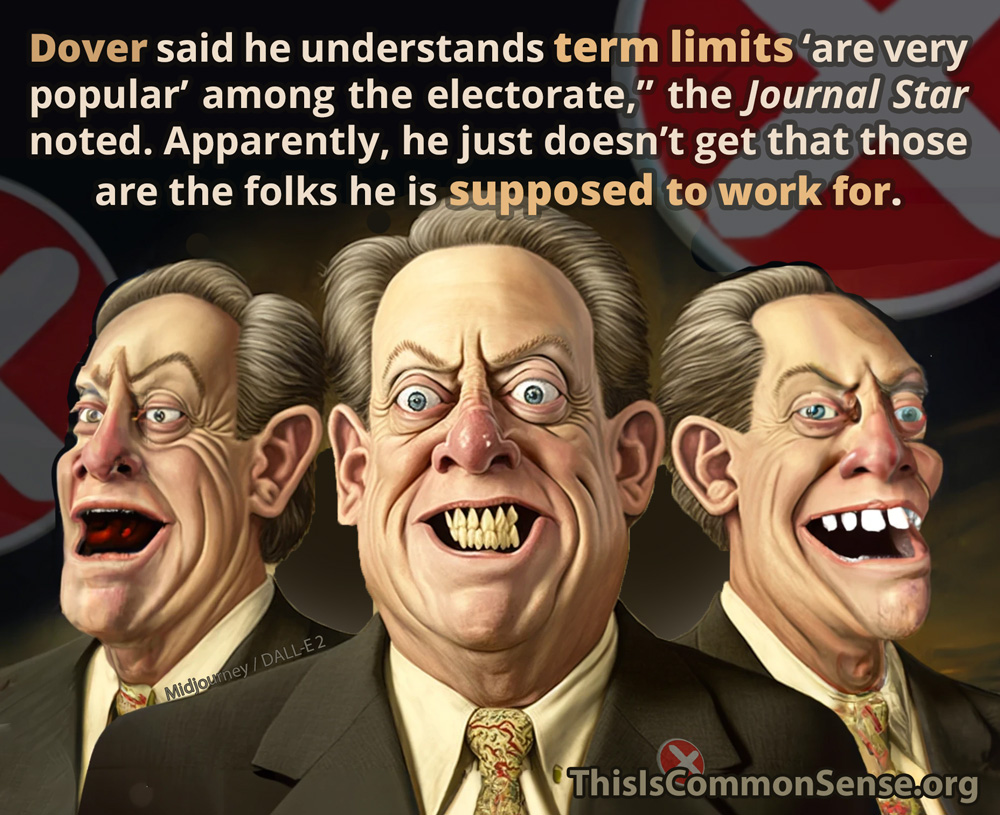Robert Dover is a freshman state senator in Nebraska’s unicameral legislature, appointed last year by the governor to fill a vacancy. Dover says that learning the ropes at the capitol has been like “drinking from a fire hose.”
I sure hope he’s found the bathrooms.
But have no fear: This rookie has already overcome that lack of experience, sponsoring a constitutional amendment, which faster than a Nebraska minute has 40 of 49 state senators enthusiastically signed on.
What has folks at the capitol so excited? His amendment, LR22CA, would dramatically weaken their current term limit by giving legislators an extra term, so they can serve 12 years, before taking a break, and not be limited to just eight.
“Dover,” the Nebraska Examiner informs, “said he quickly learned how term limits were a bad idea after talking with legislative veterans, state agency heads and lobbyists.”
“Everyone I talked to said it was a horrible thing,” he offered. “To a person, they said (term limits) took away from the consistency at the Capitol.”
By which he means, the senator elaborated — and as the Lincoln Journal Star reports — maintaining “the right relationships between senators or interest groups to strike compromise.”
Yes, indeed: the longer politicians stay in office the more they do “compromise” with special interests.
“Dover said he understands term limits ‘are very popular’ among the electorate,” the Journal Star noted. Apparently, he just doesn’t get that those are the folks he is supposed to work for.
The senator complained that Liberty Initiative Fund, my organization, is sending postcards to voters across the state to inform them about his bill, calling our effort “a waste of money.”
That tells me it is money well spent.
This is Common Sense. I’m Paul Jacob.
Note: Term limits have a long history of battling the political establishment in the Cornhusker State, which I wrote about back in 2011.
Illustration created with Midjourney and DALL-E 2
—
See all recent commentary
(simplified and organized)

